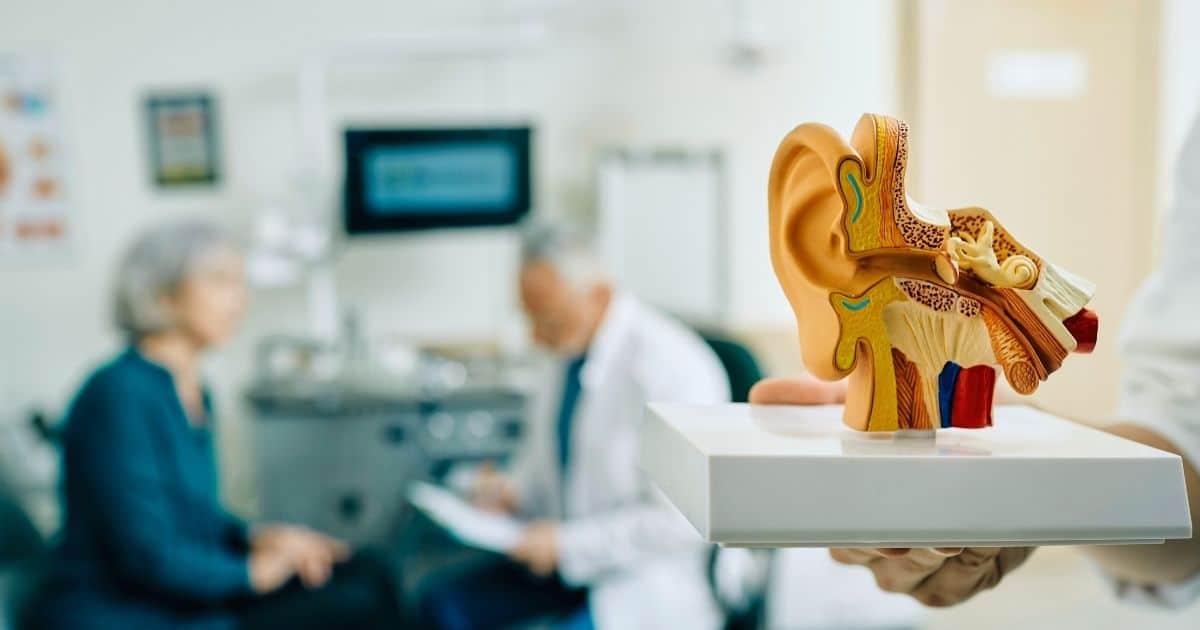by Brian Fligor, PhD
Last July, HHTM ran an opinion piece called “Ringing True: Why Audiology Can’t Crack Tinnitus.” It caught my attention since 90 percent of my case load and my junior associate’s involves tinnitus. It’s challenging work, but highly gratifying, particularly with the introduction of some groundbreaking, FDA-approved technology called Lenire. (“len-ear.”)
As the aforementioned article correctly stated, “One of the biggest issues is that far too few audiologists are getting their ‘hands dirty’ with the tinnitus population. Tinnitus remains an underserved market, and under the current service models, it will continue to be so.”
I have a more optimistic view on where our profession is heading in terms of providing lasting relief for our patients with chronic, bothersome tinnitus.
More than 10% of adults have this intrusive condition. Although most cases are relatively mild, millions in the U.S. have severity ranging from aggravating to completely overwhelming. Helping them has transformed and informed my view of audiology while dramatically increasing my professional satisfaction and office growth.
This specialty isn’t for everyone, but I get out of bed every morning with a sense of purpose and enthusiasm. That’s because audiologists are better equipped than ever to provide significant, durable relief for these patients. For colleagues who embrace this opportunity, the transformation can be life changing.
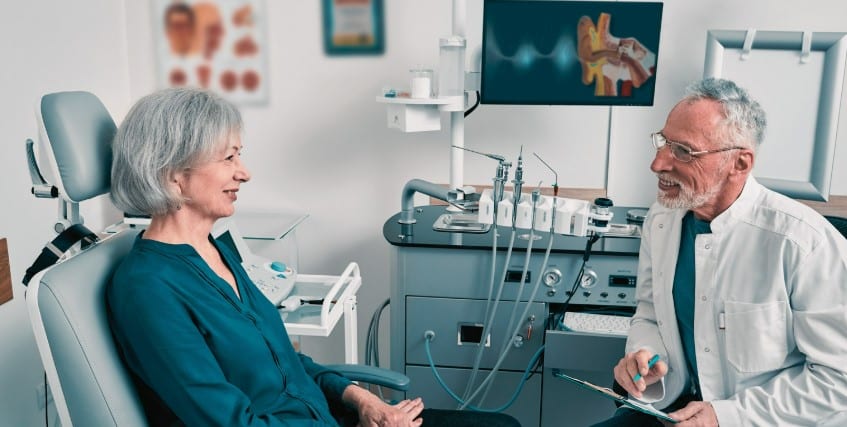
In the beginning…
My career path was probably set during childhood in Ohio. My Dad was a Navy corpsman exposed to lots of gunfire and heavy artillery.
One night at dinner he was pacing back-and-forth while holding his hands over his ears. I asked, “Are you OK?” He wasn’t an overly emotional guy, but he had pretty bad ringing in his ears. I asked if our family physician could help. He answered, “Dr. Vosler doesn’t know what to do for it. He said just go to the VA.”
Unfortunately, my dad didn’t go since he thought no one could help him.
Many tinnitus patients are at their wit’s end when they reach our offices. They have often consulted with multiple ENTs, primary care doctors, and neurologists who often reinforce the sense of helplessness. They frequently hear, “There’s nothing you can do. Learn to live with it.” This is not only incorrect, but it can actually make their tinnitus worse.
After high school I was accepted to an accelerated, six-year medical school program, but wanted something more specialized. Instead, I attended Boston University to study biomedical engineering. My undergraduate thesis project was on binaural hearing. That led me to audiology. The thought of helping people like my Dad was a big motivator.
After acquiring a Boston-based practice in 2018, I used the available tinnitus tools. They included Tinnitus Retraining Therapy, counseling, Progressive Tinnitus Management, Mindfulness Based Tinnitus Stress Reduction, masking, and hearing aids.
Tools change and improve over time. What doesn’t is the important role of empathy, patience, compassion, and careful listening. They are critical to helping our clients understand that managing their tinnitus is a process. The more they learn this is a journey with ups and downs, the more they embrace what’s required to address the problem.

Creating an action plan starts with questionnaires and detailed case histories, followed by a thorough audiological evaluation
Creating an action plan starts with questionnaires and detailed case histories, followed by thorough audiological work-up. In addition to the standard audiogram, I’ll usually assess upper limits of comfort since sound sensitivity disorders often co-occur with tinnitus. Seldom do I match the tinnitus pitch and loudness.
Patients often ask about treatments they see on the internet, such as edible products, “miracle” devices, or “science-backed” programs. Many patients don’t realize the more online research they do, the more algorithms send them similar information. It’s a swamp of false hope that’s unsupported by credible data or regulatory endorsements.
The FDA approved something that works…
The rare exception is a device called Lenire (“len-ear”). It’s a unique, bimodal treatment device created in Dublin, Ireland, over 13 years of intense work led by Ross O’Neill, Ph.D. Research and development included extensive collaborations with Hubert Lim, Ph.D., a chaired professor of otolaryngology at the University of Minnesota. (see here)
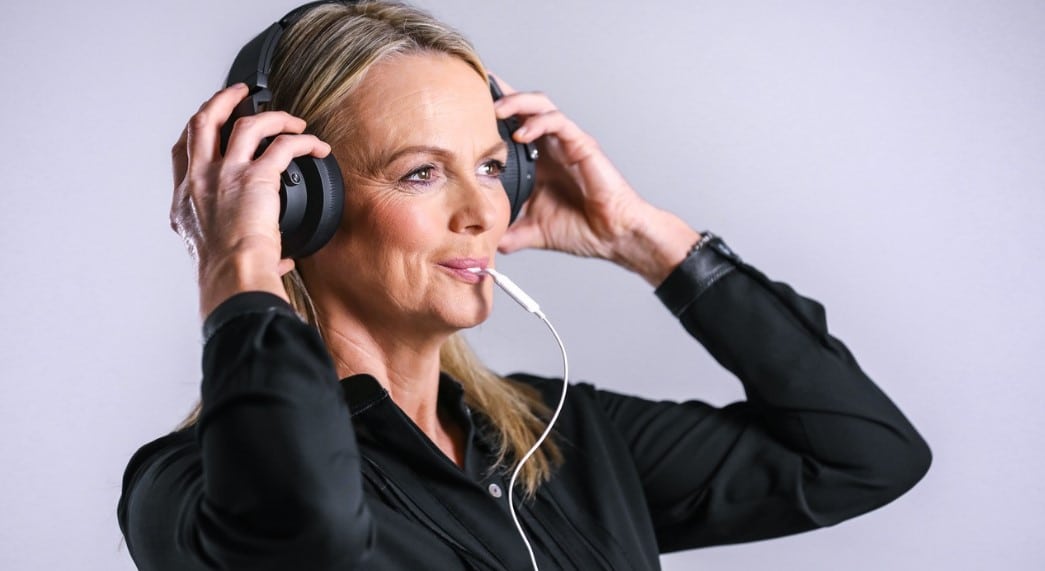
The FDA issued the first and only approval of this kind for Lenire in March 2023. It was backed by peer-reviewed studies published in prestigious journals like Nature. They have been reinforced by extensive, real-world experience at multiple locations, including patient outcomes collected at my office.
As with most things in medicine, not every patient benefits from the technology. However, the recently published success rate for more than 200 patients in a US clinic’s peer-reviewed trial was over 90 percent. Thousands of patients have already enjoyed significant improvements nationwide. (See here)
If I sound enthusiastic about this unique, drug-free, non-surgical advance in care, I am. As one of the original 20 audiologists trained in evaluating and fitting Lenire, I have prescribed it to more than 300 patients over the past 18 months. My biomedical engineering background and audiology experience say this technology could become a standard of care for patients with chronic, bothersome tinnitus.
Before introducing this unique technology in the US, Neuromod assembled a select group of us for several days of in-depth training and discussions. It was unlike anything I had ever experienced from any manufacturer. Sharing insights and experiences with colleagues who shared my passion was amazing, and our feedback was valued and appreciated.
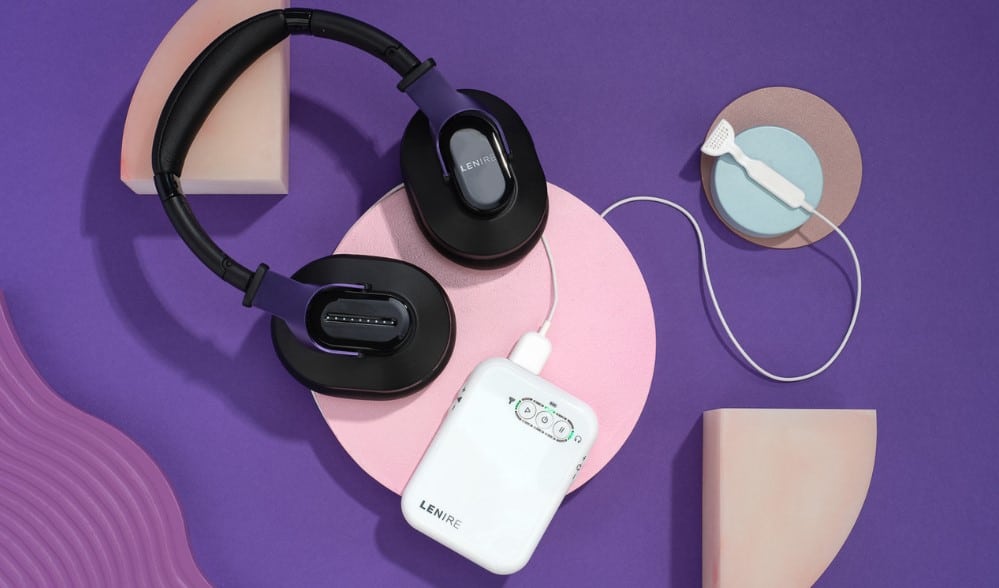
Lenire inventor and company founder Ross O’Neill, Ph.D., is a scientist, not “a business guy.” He has disclosed publicly that members of his immediate family have hearing loss, and have been consumers of hearing health since early in life. He gets what we do.
Treating tinnitus has a profound impact on practice growth…
I’m not the only one sensing which way the winds are blowing. Last November, business intelligence software company My Vitals Pro (MVP) issued a report on tinnitus and its impact on U.S. audiology practices. It was based on data collected and filtered from more than 1,000 clinics they support. Neuromod had no input on the study, and no money changed hands.
MVP knows our field because the founders have family roots in audiology dating to 1934. MVP’s clients— who are practice owners—-use its business intelligence to make better decisions about best practices, products, insurance, what’s hot, what’s not.
Here’s what their tinnitus research showed:
- Practices offering tinnitus services tend to perform better than practices that don’t.
- Pro-tinnitus practices had higher revenue per hour and more hearing aid revenue per FTE.
- Pro-tinnitus practices got 25% more referrals from physicians.
MVP drilled down further by screening every practice in their database that has fitted more than 20 Lenires. What they found is consistent with my experience these past 18 months.
- Since on-boarding Lenire, every single practice had grown, with the average being 32 percent.
- Lenire patients generated significantly more hourly revenue than non-Lenire patients.
- The average age of a Lenire patient was 61 years old, versus 75 years old for traditional private practice patients.
Those findings are consistent with other “early adopters” I’ve stayed in touch with since Lenire was introduced in mid-2023.
At a recent three-day meeting in Houston that Neuromod sponsored, I caught up with tinnitus experts I know across the U.S. All of them have seen tremendous growth in their practices. Their job satisfaction is also higher, although patient queries can be significant since they covet care that is highly validated.
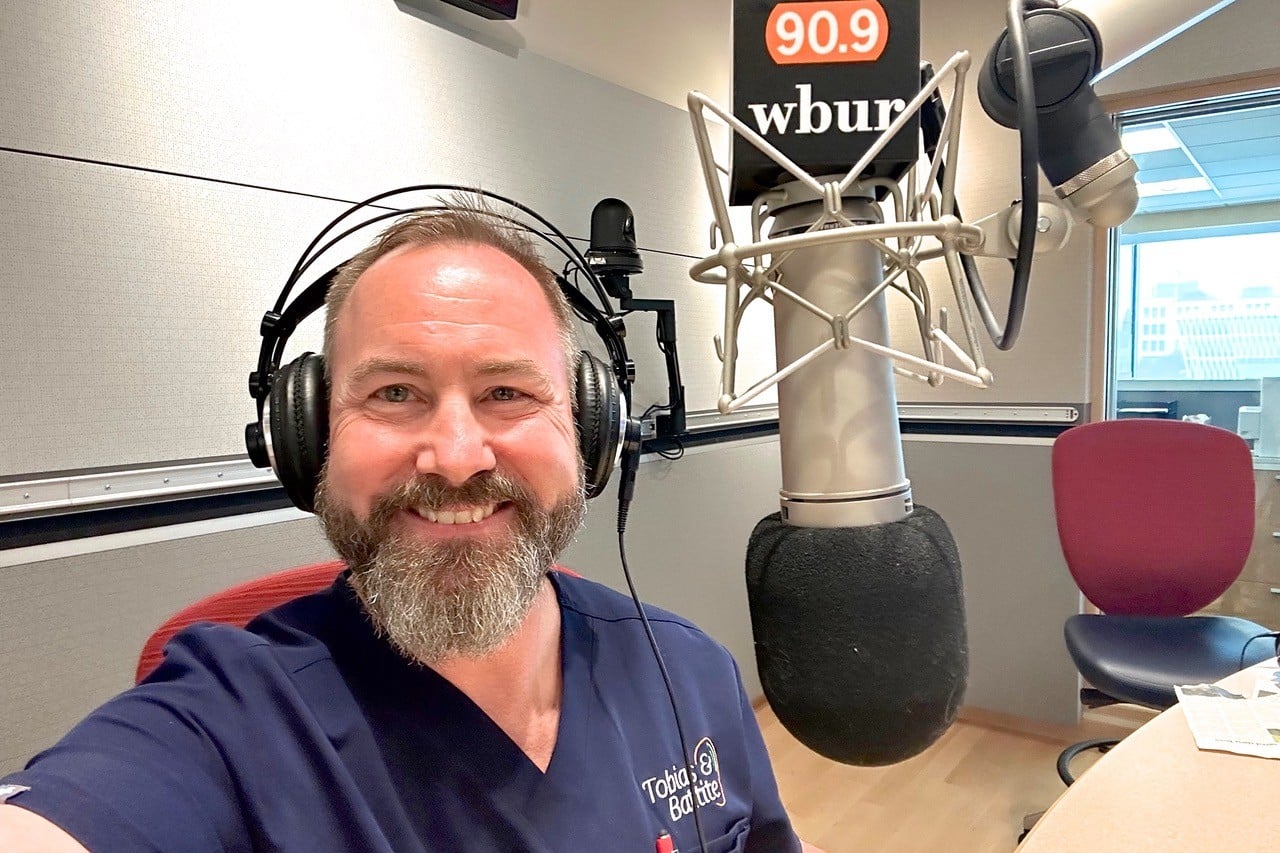
Part of what’s been driving engagement is a growing number of national and local news stories. Here are some examples from Good Morning America, Reuters TV, and National Public Radio.
Is tinnitus specialization right for your practice and you?
All of us have extensive graduate school training so we’ve already climbed a mountain of sorts. For those interested in expanding their tinnitus knowledge, additional training is vital. You can get a certification of tinnitus management through a program offered by the American Board of Audiology. The American Tinnitus Association is also a tremendous resource.
I also recommend spending some time working at a practice with experienced audiologists who focus on tinnitus evaluation and management.
It’s worth noting that Neuromod is intentional about which practices onboard Lenire. Tinnitus expertise is a must. The vast majority of patients who use Lenire benefit from it, but some don’t. For those patients, the audiologist needs expertise in what to do next. Otherwise, the likelihood of poor results increases.
That has been proven by direct-to-consumer products claimed to work as well as Lenire despite having no peer-reviewed data, no regulatory clearances, and no support from a trained professional. The insights and expertise of a trained audiologist are critical to good outcomes.
When the first electric hearing aid was introduced in 1898 by Miller Reese-Huchison, a revolution in hearing science began. I believe we’re at a new inflection point with the creation and FDA approval of this innovative new technology. The rising tide of older patients seeking help can experience relief with proven advances in care and dedicated audiologists who guide them.
About the Author
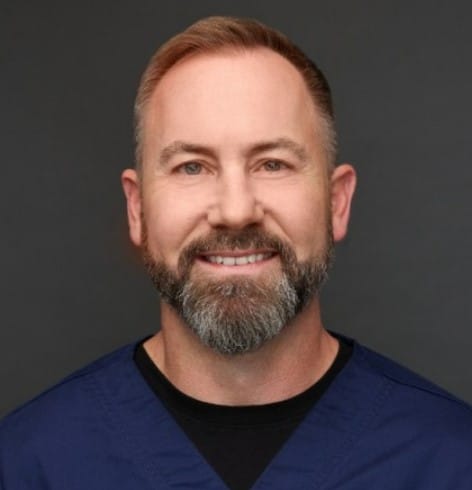 Brian Fligor, Ph.D., has a bachelors in biomedical engineering and Ph.D. in audiology from Boston University. He completed a post-doctoral clinical research fellowship at Boston Children’s Hospital/Harvard Medical School. He is adjunct audiology faculty at Mass General Hospital in Boston and GSO College of Audiology (Drexel University) in Pennsylvania. He authored Understanding Childhood Hearing Loss (Rowman and Littlefield, 2015) and is President and Audiologist-in-Chief at Tobias & Battite Hearing Wellness in Massachusetts.
Brian Fligor, Ph.D., has a bachelors in biomedical engineering and Ph.D. in audiology from Boston University. He completed a post-doctoral clinical research fellowship at Boston Children’s Hospital/Harvard Medical School. He is adjunct audiology faculty at Mass General Hospital in Boston and GSO College of Audiology (Drexel University) in Pennsylvania. He authored Understanding Childhood Hearing Loss (Rowman and Littlefield, 2015) and is President and Audiologist-in-Chief at Tobias & Battite Hearing Wellness in Massachusetts.



